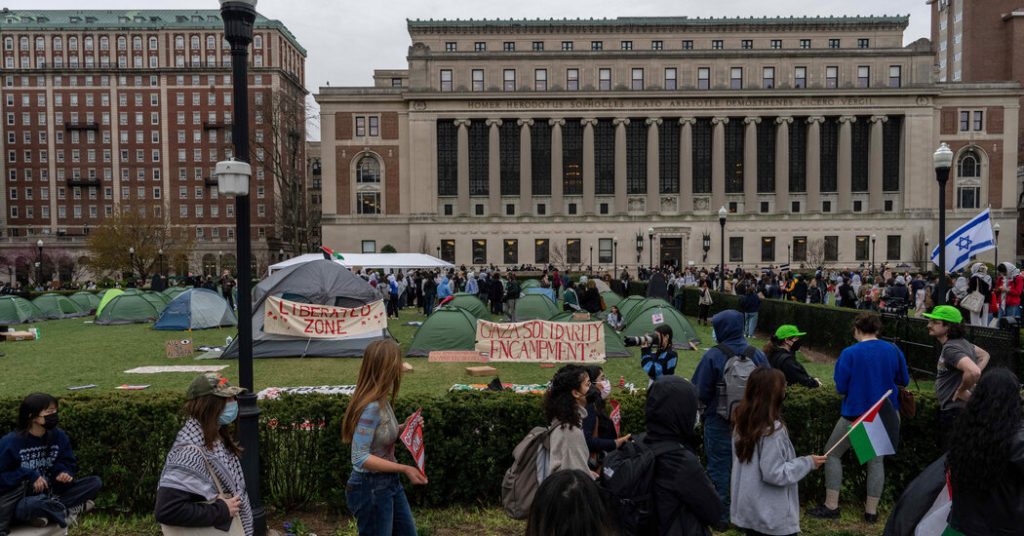Representative Elise Stefanik questioned the president of Columbia University, Nemat Shafik, about whether the university would remove a professor who praised a Hamas attack from a leadership role. The hearing was examining antisemitism on campus, with Republican lawmakers probing for weaknesses on the issue. Despite pushback, Shafik and other campus leaders managed to diffuse the attacks, acknowledging the seriousness of antisemitism and promising to address it. However, tensions on campus escalated as pro-Palestinian students erected an encampment, demanding divestment from companies with ties to Israel and rejecting the idea that their activism was antisemitic.
The split-screen moment at the hearing highlighted the challenges facing Dr. Shafik as she navigates the delicate balance between addressing antisemitism and supporting pro-Palestinian advocacy on campus. The fallout from the hearing may shape her early presidency, as previous Ivy League leaders faced consequences for their responses to similar inquiries. Dr. Shafik acknowledged the difficulty facing college leaders in balancing academic freedom with creating a safe and inclusive environment for all students. The challenge of reconciling conflicting speech rights is a central issue at Columbia and campuses nationwide.
Dr. Shafik appeared at the hearing with trustees and a senior law professor, who made it clear they were not taking an oppositional stance. Some Jewish students expressed concerns about antisemitism at Columbia and were given seats at the hearing, where they found Dr. Shafik’s responses to be a good start. However, some believed Columbia should take further action, such as firing professors who have made antisemitic statements. Outside the hearing, reactions were more mixed, with some Jewish professors objecting to what they saw as the congressional committee exerting control over the university and Dr. Shafik making dangerous concessions.
During the hearing, members of Congress, led by Representative Stefanik, questioned Dr. Shafik aggressively about why professors with abhorrent statements were still teaching at Columbia. While some lawmakers praised Columbia’s officials for their responses, the hearing ended with more protests outside the campus gates. Demonstrators displayed signs condemning Israel and supporting Palestine, echoing refrains that had been condemned by lawmakers earlier in the day. Jewish and Palestinian students at Columbia expressed differing opinions on the situation, highlighting the complexity and divisiveness of the issue on campus.


